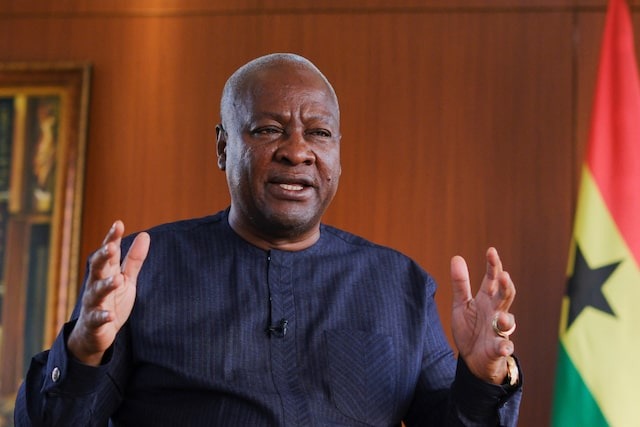
The president-elect of Ghana intends to overhaul the regulator and modernize the cocoa industry
John Dramani Mahama, the president-elect of Ghana, has promised to restructure the state-run regulator and revitalize the cocoa industry in an effort to boost productivity and growth in the second-largest cocoa producer in the world.
He attacked the cocoa industry’s structure, in which farmers and the cocoa marketing board (COCOBOD) battle for revenues, in a Friday interview with Reuters.
“Can we have a state enterprise that is the regulator and quality controller, and that creates an opportunity where the farmer is getting his money directly?” “Mahama said.”
“We will see how to restructure it (COCOBOD).”
From seedlings to jute bag supplies for packing beans for export, the COCOBOD regulates every facet of Ghana’s cocoa production. Breaking things up hasn’t worked in the past.
Mahama hinted to the private sector’s potential engagement in some COCOBOD-managed areas when he stated that his government will hammer out the details of a reorganization.
Voters’ discontent with the country’s growing costs of living, insecurity, and declining output in its vital cocoa and gold sectors propelled former president Mahama to a resounding victory in the election held on December 7.
As the economy recovers from its worst crisis in a century, Mahama will assume office on January 7 as leader of the National Democratic Congress party, which also won a sizable majority in the parliamentary election.
Reviving the production of crude oil and cocoa would be one of Mahama’s top priorities in order to boost growth and non-tax revenue.
Last season, Ghana’s cocoa production fell to its lowest level in decades due to a combination of wildcat gold mining, tree disease, and climate change.
The fact that COCOBOD’s administrative expenses more than tripled between 2018 and 2023 has further raised questions about the organization’s spending.
Mahama attributed the depletion of cocoa production funding and the denial of ideal prices to COCOBOD’s reckless expenditure, which he said caused many farmers to resort to illicit mining or look for other sources of income.
The farmer, not the bureaucracy, will be the main benefactor of his suggested reforms, which are intended to boost efficiency throughout the cocoa sector’s value chain.
A turnaround plan to reduce expenses and raise farmers’ share of cocoa profits has been proposed by COCOBOD in response to the International Monetary Fund (IMF), which is overseeing a $3 billion, three-year rescue program with Ghana.
“We’re willing to work with anybody if it’ll make the cocoa sector more efficient and bring back our cocoa production to what it was before,” Mahama stated.
All Categories
Recent Posts
Tags
+13162306000
zoneyetu@yahoo.com



